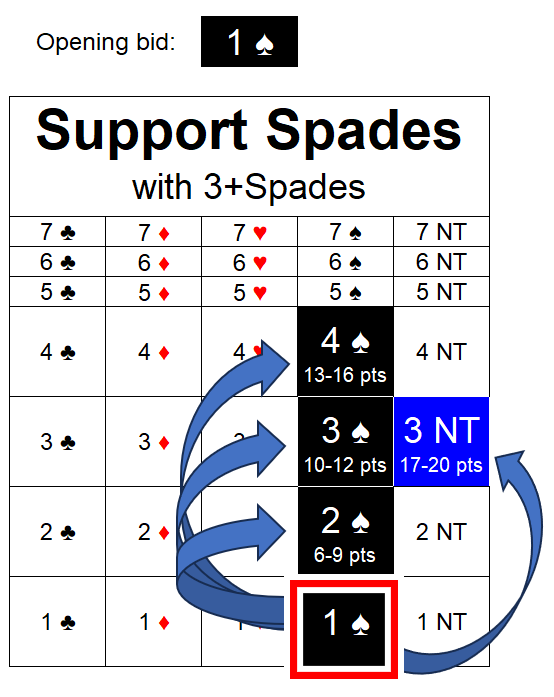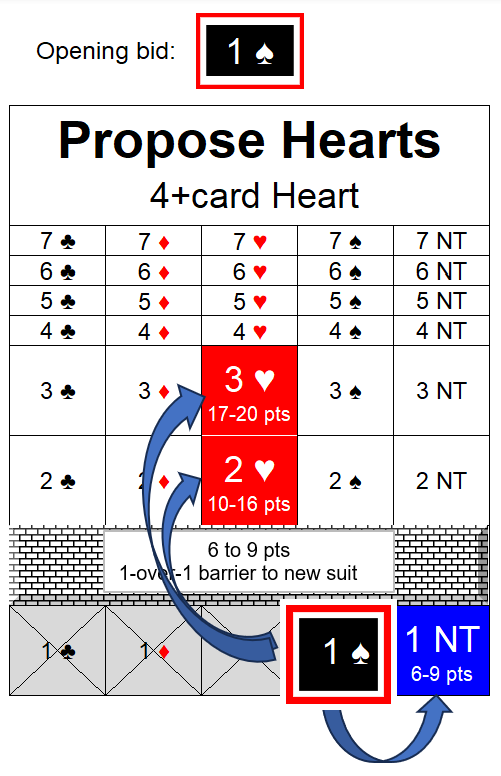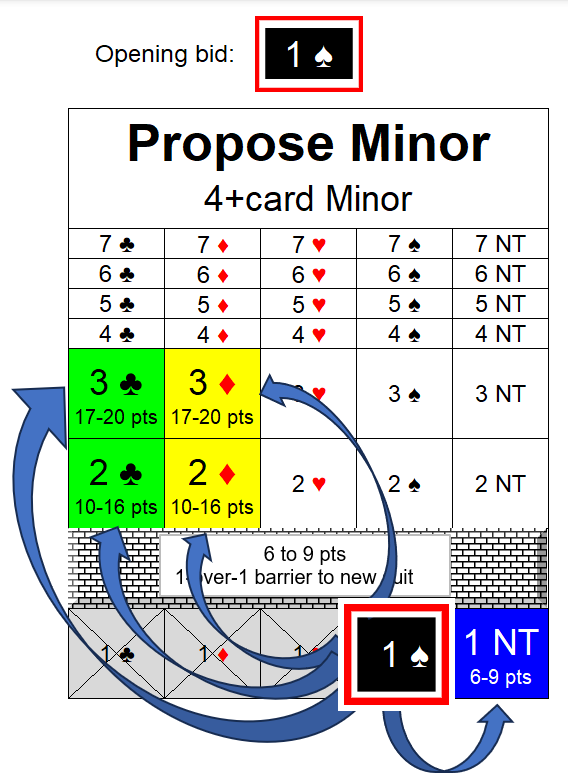Responder has a 3+card spade suit.
×
Ignore the other 3 suits. The responder has found the suit to play. The responder does not know what the opener has or does not have in addition to 5+spades. Do not be tempted by better looking suits. The opener may not be able to support other suits. Act on what is known, not on what is hoped for.
By rebidding spades, the responder is SUPPORTING the spades. The opener knows the responder has at least 3-spades and the partnership will play a spades contract. The level of the responder's next bid indicates the point count range of its hand, which will be used by the opener to find the appropriate contract level to play.
Support raises are not subject to the 1-over-1 restriction. If the responder has:
6-9 pts: Bid 2 ♠ - a single raise indicating the point count range. There are not enough combined partnership points for a game.
10-12 pts: Bid 3 ♠ - a double raise indicating the point count range. There are not quite enough combined partnership points for a game.
13-16 pts: Bid 4 ♠ - a triple raise to game. There are enough partnership points for a game in spades. The opener will consider this bid as a close-out bid, and will likely pass.
17-20 pts: Bid 3 NT - jump-shift raise indicates the responder's spade support and point count range. This commits the partnership to a game level contract, and maybe more. This bid gives the opener the options to play the game level contract in No Trump, play the game level contract in 4-Spades, or explore a slam contract.
By rebidding spades, the responder is SUPPORTING the spades. The opener knows the responder has at least 3-spades and the partnership will play a spades contract. The level of the responder's next bid indicates the point count range of its hand, which will be used by the opener to find the appropriate contract level to play.
Support raises are not subject to the 1-over-1 restriction. If the responder has:
6-9 pts: Bid 2 ♠ - a single raise indicating the point count range. There are not enough combined partnership points for a game.
10-12 pts: Bid 3 ♠ - a double raise indicating the point count range. There are not quite enough combined partnership points for a game.
13-16 pts: Bid 4 ♠ - a triple raise to game. There are enough partnership points for a game in spades. The opener will consider this bid as a close-out bid, and will likely pass.
17-20 pts: Bid 3 NT - jump-shift raise indicates the responder's spade support and point count range. This commits the partnership to a game level contract, and maybe more. This bid gives the opener the options to play the game level contract in No Trump, play the game level contract in 4-Spades, or explore a slam contract.



